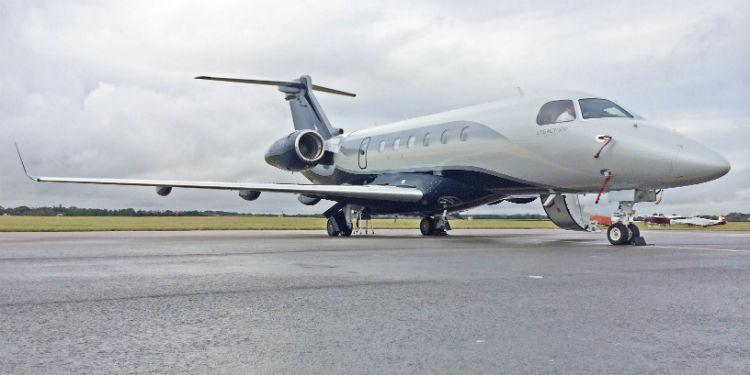Why business jets makes economic sense

Business jets are expensive assets, but the time saved by flying privately can make it the right investment for many businesses.
Your car drives you to the airport and parks next to your aircraft. You board it as your luggage is lifted into the back. There is no queuing for security, no need to move between terminals or sit waiting for flights. You fly to the airport nearest where you want to go, you do not need to change aircraft and you can fly home when you want to.
Quite simply, in almost every way (the exception may be the toilets on very small aircraft), flying privately is quicker and more pleasant than with commercial airlines. There is less hassle, less stress and the aircraft leaves when you want it to.
MUST-READ: What it’s really like to fly on a private jet
It is simply a better experience. Nearly every high-net-worth individual who tries flying privately wishes they had started earlier.
But corporate jets are not about luxury. They are about time.
Time machines
Business jets offer passengers the ability to make business trips that would be impossible when flying on commercial airlines. This is true with all sizes of aircraft – smaller light jets like Cessna’s Citation Mustang make it possible to have meetings in Amsterdam, Frankfurt and Milan in one day and still get you home that night. This is why companies like Walmart, the owner of Asda and McDonald’s – rarely viewed as luxury companies – use business jets.
Large continental jets like the Gulfstream G650 can get you around the globe flying faster than any commercial jet, allowing you to have breakfast meetings in Hong Kong, business lunch in Shanghai and dinner in Mumbai.
ALSO READ: Five reasons to fly on a private jet
OK, so it is not cheap to fly on a business jet. Business jets are expensive assets; they cost a lot to fuel and operate (they have similar safety standards as commercial aircraft and similarly qualified pilots) and it also costs a lot more to land at the closest airport to a city than one that is 50 miles away.
It is estimated that prices for a two-hour charter flight start at $6,000, where as flights from New York to London can exceed $100,000. But if your CFO calculates the time value of four executives spending several days out of the office rather than just one – and of course hotel and subsistence costs – then spending several thousand pounds chartering a jet can often be the right investment.
As Warren Buffett, chief executive of Berkshire Hathaway, says: “Berkshire has been better off by me having a plane available to go and do deals. It’s a plus; we’ve done things I would not have done if we hadn’t had a plane.”
As arguably the world’s most successful investor, Buffett knows that there is only one thing that no one can buy: time.
Get nearer to your final destination
In the US, private jets can land at around 10 times as many airports as commercial airliners (over 5,000 compared to around 550). Whether you are heading to a business meeting, a hotel or a sports event, flying by private jet allows you to get nearer to your final destination (the FBO should be pleased to arrange a transfer via car or helicopter), which saves you even more time.
The added accessibility afforded to private jets is even more of an advantage if you are looking to reach parts of the world, which are not traditionally well served by airlines, such as Russia, Kazakhstan, south-east Asia or parts of Africa; a business jet flight can literally save you several days of travelling.
Make the most of the time that you do have
It is easier to justify the premium price tag of a private jet flight in terms of the hours saved, but there’s also a case that private aviation allows you to maximise the time that you do have.
The privacy of a corporate jet affords you the peace and quiet to work without distraction and to hold meetings without the risk of being overheard when discussing sensitive information. The lead passenger of the aircraft has complete control to choose the other passengers on board, including the pilot(s) and flight crew to guarantee peace of mind and familiarity.
The technological advantages of private aviation mean that most modern private jets are installed with wireless internet access, telephones and power sockets, allowing you to conduct meetings with people on the other side of the world, as well as the ones on board the aircraft.
At the more luxurious end of corporate aircraft spectrum, large-cabin private jets, from the Dassault Falcon 7X to the Boeing Business Jet 1, are big enough to split the cabin into different sections, accommodating different meeting rooms and multiple bedrooms and bathrooms. It is also now possible to install technology such as streaming television – although the costs can be very high.









